DRC’s male and female rape survivors share their stories
In the Democratic Republic of the Congo, rape is widely used as a weapon of war against women, men and children.
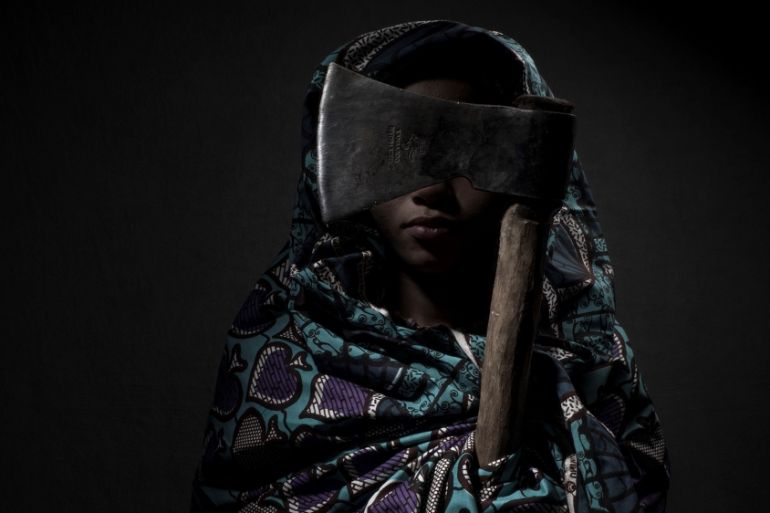
Alain (whose name has been changed to protect his identity) is from the Democratic Republic of the Congo (DRC). But last autumn, he was sitting in the office of the Refugee Law Project in the Ugandan capital, Kampala, as he calmly recounted his story.
He described the night in May 2012 when government forces attacked his family’s home in the DRC.
Keep reading
list of 4 itemsPrison demanded for Spain’s ex-football boss Rubiales in kissing scandal
The problem with British policing is not ‘just a few bad apples’
Homes of Sean ‘Diddy’ Combs raided amid sex offence lawsuit
“It was 8pm and they shot open the door with a gun, yelling at us, accusing us of being rebel sympathisers,” Alain recalled.
His father, he said, had been in a dispute with a local politician over some land. He believes this is why they were targeted.
“They said: ‘You support the rebels. We’ll show you that you are not a man.'”
Alain said his father begged them not to hurt his family. But they did not listen.
“They shot me in the back. They put a cable around my neck and began choking me. The soldiers grabbed and held me down. They said, ‘We are going to rape you.’ And they each took turns.
“I used to be big and strong, but I couldn’t fight off all three. I closed my eyes, and I only heard sounds.
“I heard the cries of my mother and sister as they were raped in the next room. Then shots rang out, and my father was dead.”
A neighbour found the family after the attack and took them to the hospital. It was the last time that Alain saw his mother and sister.
Alain underwent surgery in the hospital, after which he said the pastor there told him that he would never again be considered a real man.
He felt he had no choice but to leave the country, so he took a bus to neighbouring Uganda.
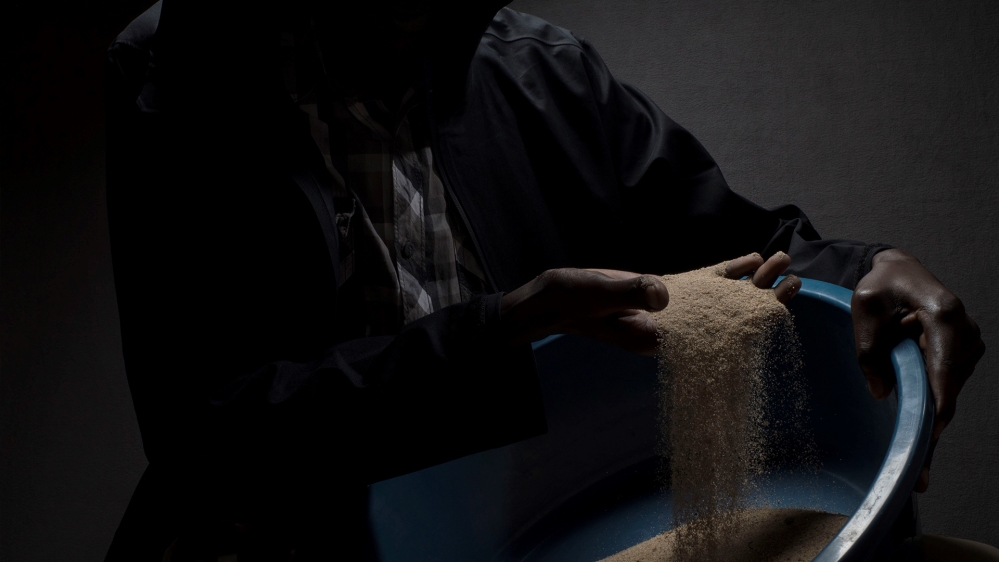
A cycle of stigma and shame
Today, Alain lives in Uganda, where he continues to suffer from trauma, physical injuries and social stigma.
He joined the Men of Hope Refugee Association – a group based in Uganda – which has taken up the fight against sexual violence in conflicts across Africa. Its members are men who have survived rape and torture in the DRC.
I will go home and be alone and that's when it starts replaying in my mind like a movie. Reliving this story, reliving this trauma.
Even though they managed to escape their homeland, they still need to conceal their identities when being photographed, because homosexual activity is illegal in Uganda, and these men risk punishment if they talk about their rapes.
In the eastern part of the DRC, thousands of women, men and children are subjected to rape every year.
The perpetrators come from different groups and militias and – in Alain’s case – government forces.
“When I retell my story, like I did with you today,” he said, “I will go home and be alone and that’s when it starts replaying in my mind like a movie.
“Reliving this story, reliving this trauma. But that is where RLP (the Refugee Law Project) has helped me. They have taught me ways to manage my anger, fear and memories.”
He implores the “powerful countries of the world” to speak up against these crimes. “We must stop these bad things,” he said.

Doctors estimate that nearly one in four men in eastern DRC has been raped. It is also thought that one in three women has suffered from sexual violence, according to aid workers interviewed for this article.
These people suffer twice – from the act itself, and from the social discrimination they endure as a result of it.
Shifting the blame
The United Nations Special Representative on Sexual Violence in Conflict, Pramila Patten, who is based in New York, knows that survivors often face the added stigma of being associated with the armed group that raped them, sometimes because they have conceived children as a result of the rape.
In some areas, fear of HIV and AIDS causes husbands to leave their wives after they have been raped, while male victims are often seen as emasculated, which drives many to leave their families.
“In this sense, there is an urgent need to shift the blame, shame and stigma of rape from the victims to the perpetrators,” Patten explained.
She thinks things are changing, however. The silence surrounding this crime has been broken, not only within civil society in the DRC, but also among religious leaders and members of the security forces and justice system. But, Patten added, “the road to eliminating this scourge remains long.”
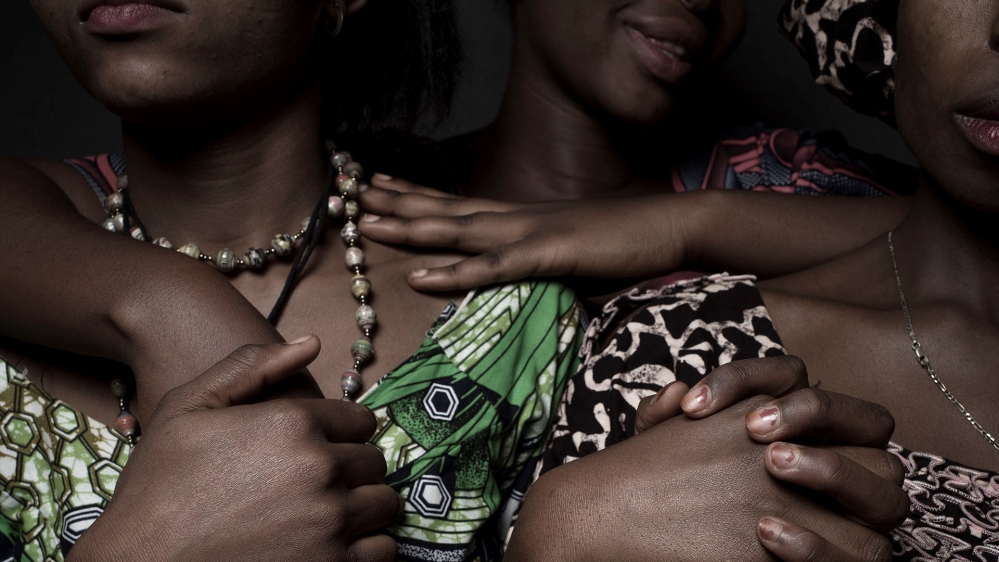
Some military and police personnel are still part of the problem, say aid workers, because they enjoy impunity. Amnesty International has called on the DRC government to take more drastic action against them.
The DRC’s government formally recognises justice as a key component of prevention and deterrence, but NGOs say that judicial processes against alleged rapists are still rare.
A ruling last year by the International Criminal Court (ICC) in the Hague has given some survivors hope, however. Judges at the ICC convicted ex-rebel leader Bosco Ntaganda of crimes against humanity and war crimes.
However, most perpetrators will never face justice for their crimes, said Karen Naimer, who leads the programme for sexual violence in conflict for the NGO Physicians for Human Rights.
“The perpetrators roam freely with impunity, and the survivors live with enormous shame, guilt and self-blame,” she explained. “This trauma can lead to depression, anxiety, difficulty sleeping or maintaining interpersonal relationships, among so many other psycho-social and physical consequences.”
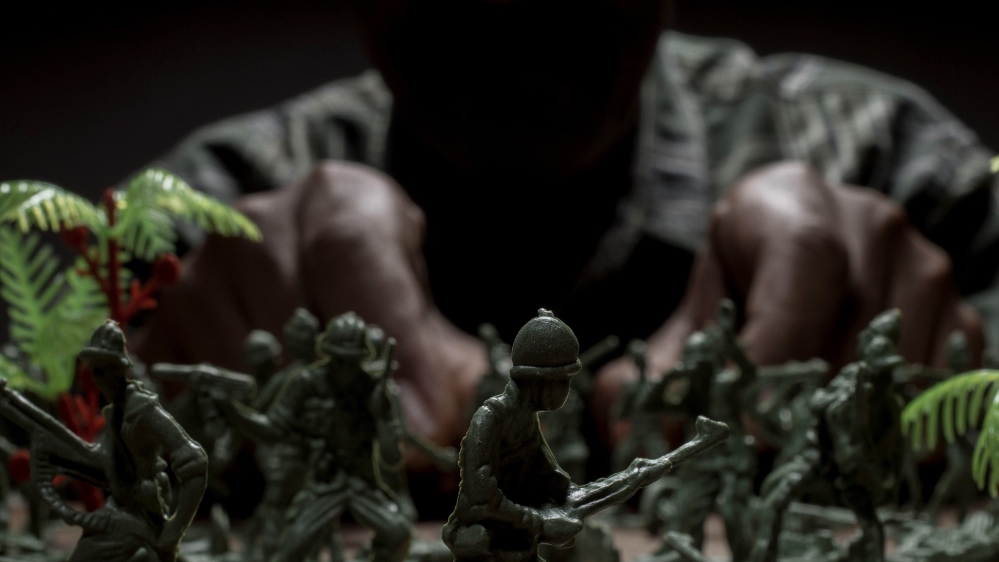
Rape as a weapon of war
This is precisely why rape is such an effective weapon of war and is used as such so widely.
According to the latest UN report on sexual violence in conflict, published in March 2019, rape is used as a weapon in 15 countries around the world, mostly in Africa and the Middle East.
In addition, past sexual violence – used as a means of warfare in Bosnia-Herzegovina, Nepal, Sri Lanka and the Ivory Coast – continues to take a toll on victims.
“It is a crime as old as war itself,” said Patten. “Unless psychosocial support is available to the victims, very few will be willing to report these crimes, and fewer still to publicly pursue justice.”
For every case that reaches a clinic, there are 10 to 20 that are never reported, she added.
A hospital gives hope

Nobel Peace Prize winner Dr Denis Mukwege works as a gynaecologist in eastern DRC. In 1999, he founded Panzi Hospital in the city of Bukavu to treat victims of sexual violence. His first patient was a rape survivor whose reproductive organs had been destroyed.
Mukwege recounted how in the 1990s, he treated women who had been raped. Today, he is repairing their daughters.
The 65-year-old said he still “fixes” thousands of rape survivors every year. These days, his patients are increasingly underage. His youngest was just six months old.
“Rape is used as a weapon of war because it has the power to tear apart families and destroy the social fabric of entire communities,” he explained.
“In most areas where conflict is prevalent, people are already struggling with insurmountable challenges: Extreme poverty, insecure food sources, and inadequate health systems. When this is coupled with the brutality of rape and the trauma that ensues from watching your mother, sister, daughter – and, yes, sometimes your father, brother or son – or other family members be sexually assaulted, it creates a cycle of shame and stigma that is difficult to break without access to compassionate, holistic care.”
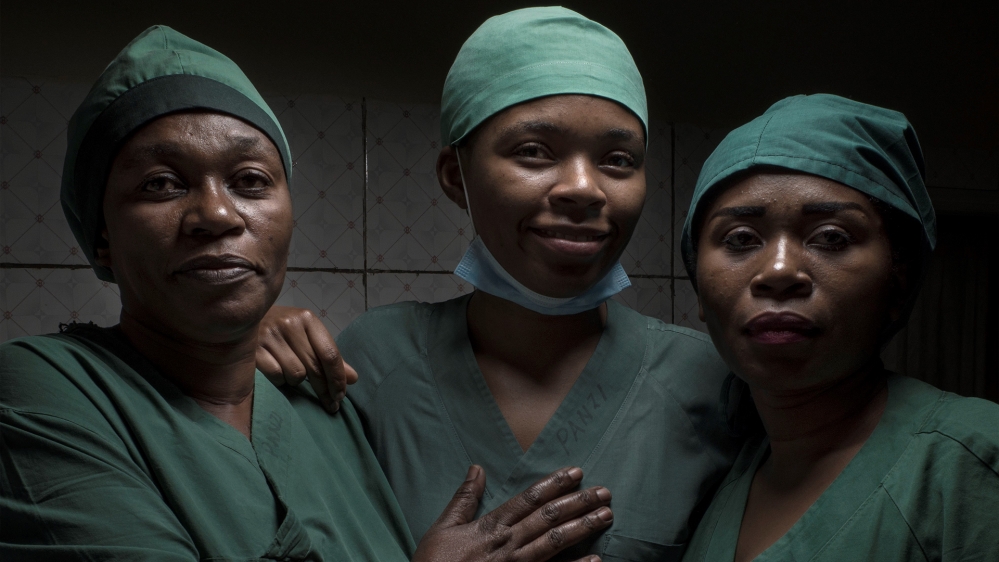
Powerless to protect
The worse the situation becomes in the DRC, the more intense the pressure on the UN’s Organization Stabilization Mission in the Democratic Republic of the Congo (MONUSCO).
Twenty years ago, the UN Security Council decided to send a peacekeeping mission to the DRC – to date the largest peacekeeping operation in the world. But it does not seem to have helped much.
In 2011, the use of rape as a weapon was so prevalent that senior UN official Margot Wallstrom called the DRC “the rape capital of the world”.
A few years later, from 2013 to 2016, it got even worse. Militiamen kidnapped babies and children in the middle of the night in the eastern village of Kavumu. After having assaulted them, they left them in the fields surrounding the village. It took three years for these cases to even be investigated.
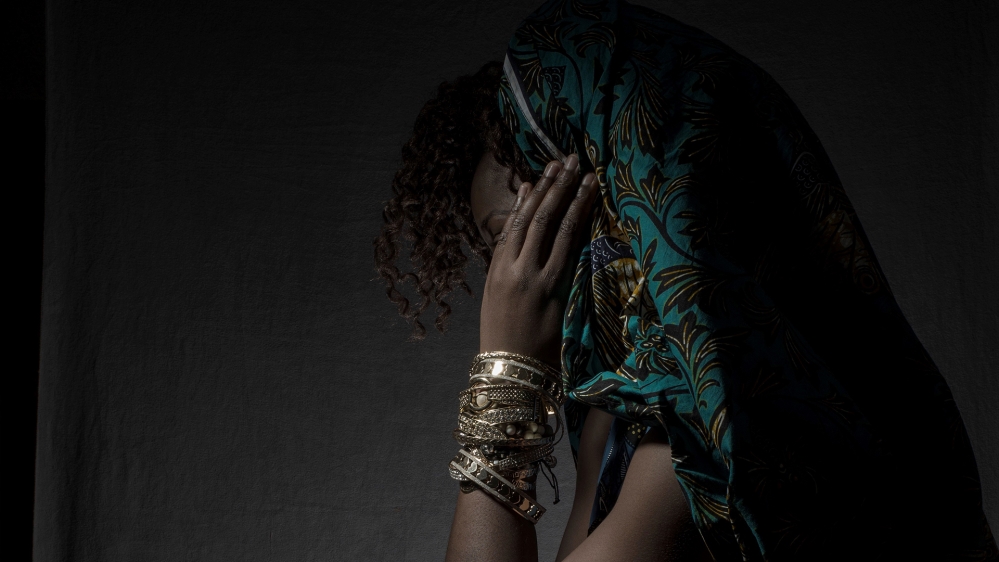
In November last year, citizens started to demonstrate against the UN peacekeepers in the northeastern city of Beni. On November 25, protestors set fire to some offices at the MONUSCO headquarters, saying the peacekeepers were doing nothing to protect them from rebel attacks.
“It is scandalous that civilians are dying day in, day out while the local police and nearby UN peacekeepers stay put in their camps,” Amnesty International wrote the same day in a public statement.
Despite this, the UN Security Council decided last December to reduce MONUSCO military personnel from 16,250 to 14,000.
In addition, the UN is currently investigating sexual abuse allegations in its own peace operations in the DRC. Data from the crisis-mapping project, ACLED, based in the US, show that sexual violence in DRC is often exacerbated by those who are there to offer protection.

‘These men destroyed my life’
The story of another survivor, Lucia, who did not want to give identifying details such as her real name, age or the name of her village, illustrates the brutality of such attacks.
My life has been a nightmare since my first rape at the age of 13.
When it came to taking her photograph, she chose to hide her face with an axe. Like most survivors, she fears threats and revenge.
“My life has been a nightmare since my first rape at the age of 13. I went to a wedding with my family in Bunyakiri, and while fetching water from the river, my friends and I were raped. I was raped by a number of men – I have never been able to count – and since then, I have been physically paralysed and am disabled,” she recounted.
“One month afterwards, I realised that I was pregnant. A baby boy was born of this rape, but this child will never know who his father is because they were too many that day to know for sure. These men destroyed my life.”
Lucia’s nightmare was far from over. Three years later, she went to her cousin’s wedding in Kalonge, around 45km (28 miles) from where she was first raped.
Again, rebels attacked the village, but this time Lucia could not even try to run. Despite her physical paralysis, several men raped her that day. She later gave birth to her second child.
She asked: “Who should I fight? My fear, my pain, my despair or the unknowns that are the basis of my misfortune?”
Lucia’s story is not unusual in eastern DRC. Many women are raped multiple times.

Within the ranks of the UN Security Council, Germany is one country that is particularly committed to ensuring protection from sexual violence. After tough negotiations with the United States and other member states in New York last April, the council adopted a resolution to combat sexual violence in conflict.
In a statement in December, the council urged the government of the DRC to hold accountable those responsible for violations of international humanitarian law and human rights abuses. It stressed the importance of regional cooperation and cooperation with the ICC.
But what have these resolutions achieved so far? Germany’s Foreign Minister Heiko Maas worked on the council’s draft.
“We made an important step with Resolution 2467,” he wrote in an email. The resolution would allow states to sanction those who commit or order sexual violence in conflict. It emphasises the rights and needs of the survivors, while also addressing issues that have so far been neglected, like male victims of sexual violence.
“There is still a lot of work to be done to implement the resolution, from the United Nations but also from the member states. We will make sure this happens,” Maas added.
‘The law of the strongest’
There are more than 100 rebel groups in the DRC, concentrated mostly in the east.
One of the most violent is the Democratic Forces for the Liberation of Rwanda (FDLR), an ethnic Hutu group whose members participated in the genocide of the Tutsi in Rwanda in 1994, after which many fled to the DRC.

Some spine-chilling conclusions about what drives such armed rebels were made in a peer-reviewed study by researchers Nina Wilen and Bert Ingelaere three years ago. Based on discussions with 101 former members of the FDLR, a team of scientists examined how former members of the group made sense of sexual violence by studying prevailing gendered images of “self” and “other”.
In times of war, there are no laws, it's the law of the strongest that reigns.
The findings showed that ex-combatants attributed overwhelming importance to biological “givens” such as “urges”, “basic needs” and “domination”. They described a woman’s body as a territory to be used, much like the territory that the rebels were trying to conquer.
But the researchers found that their narratives about sexual violence changed when they talked about fighters from opposing groups. They were seen as mentally disturbed or barbaric perpetrators, responsible for group rapes, genital mutilation and rapes of children.
According to the scientists working on this study, one former rebel said: “In times of war, there are no laws, it’s the law of the strongest that reigns.”
Controlling resources
Today, political instability and poor infrastructure help armed groups continue their violence. Many of them survive by controlling the DRC’s resources.
Tatiana Mukanire from the eastern city of Bukavu explained how this works. She is the DRC national coordinator for the Global Network of Victims and Survivors to End Wartime Sexual Violence (SEMA), which is supported by the Dr Denis Mukwege Foundation. The network brings together victims and survivors of conflict-related sexual violence from countries around the world.

Mukanire is a survivor herself, photographed with a shovel in her hand, ready to take up the fight. Unlike most survivors, Mukanire, a middle-class businesswoman, can speak publicly about the suffering of victims. She used to hide behind her nickname, Taty, but had enough social support to tell her story.
What you need to understand is that the armed groups aren't fighting each other. They are fighting the civilians.
Mukanire thinks the battle for control over resources has led to a normalisation of rape as a means of war and terror.
“They need to control the shipping routes. So, they set up roadblocks and take whatever they want along the way,” she explained. “What you need to understand is that the armed groups aren’t fighting each other. They are fighting the civilians.
“The militias have already divided up the land. What they need to control is access. And this is where they interact with the civilian population. This is where they can tax everything moving across the roads or steal from and rape the people they find moving on these paths.”
According to an IPIS study conducted in 2017, more than 1,500 roadblocks exist in the eastern region of the DRC. Not only are these roadblocks funding armed groups, but they are destroying the nation’s economic viability, raising the cost of everything from transport to basic goods like vegetables. Rape, socioeconomics and access to markets are all intertwined.
Fighting back

Like Mukanire, the people of the DRC have endured much violence, but they have not given up.
The encouraging voices come from survivors like Baraka, whose name has been changed to conceal his identity and who fled to Uganda is now a member of the Men of Hope Refugee Association.
He has been going to therapy with his wife and said he finally realised that he was not alone.
“It took me many years to share my story. But it was counselling that gave me the courage,” he explained.
“I was first a victim, then a survivor and now an activist. Let me start a new life to help stop all atrocities.
“I want to rebuild a life for the future of our children.”